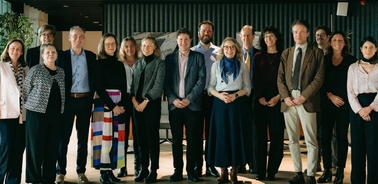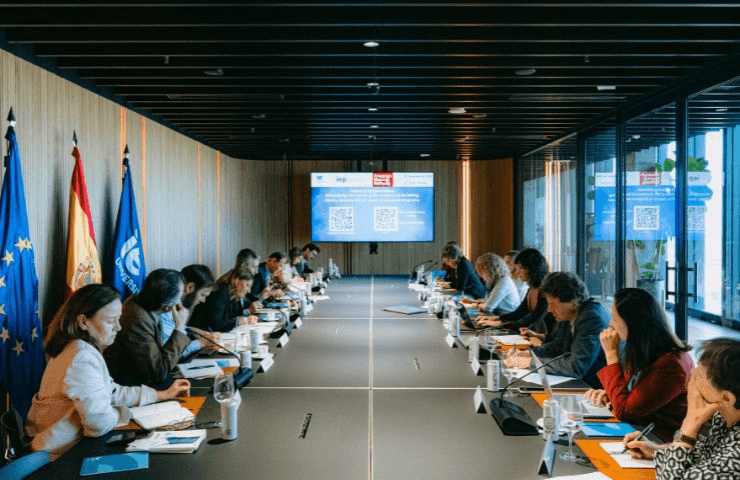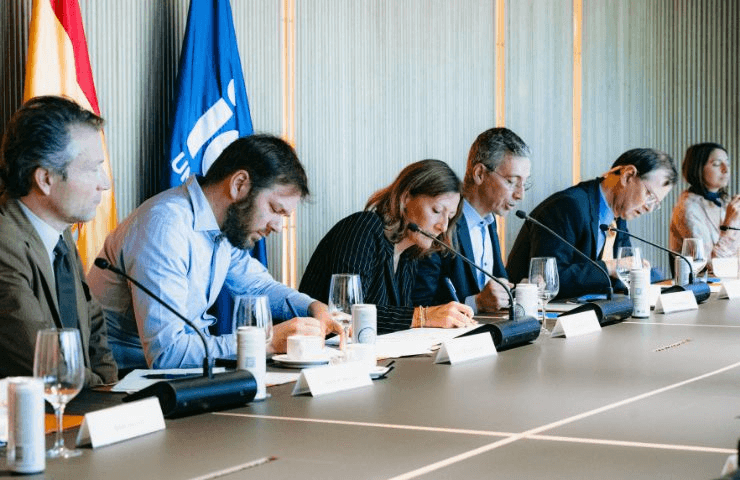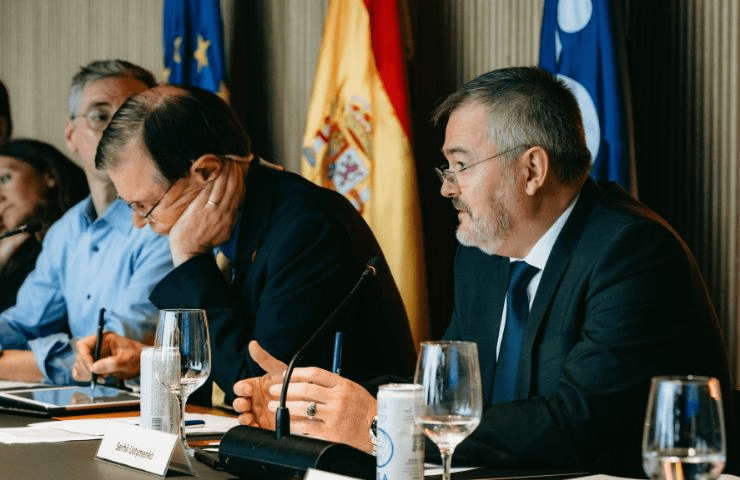Future of Europe Debates: Demystifying the concept of the Coalitions of the Willing: History, evolution and its impact on European integration

The concept of “Coalitions of the Willing” in European affairs, a concept long debated within European affairs, and whose formats have been tested but are far from being institutionalized, recently took center stage during the latest installment of the prestigious Future of Europe Debates series. On Thursday, November 6th, 2025, leading European policy experts convened for a GPC workshop titled: “Demystifying the concept of the Coalitions of the Willing: History, evolution and its impact on European integration”.
Organized collaboratively by the Global Policy Center at IE University Tower, the Institut für Europäische Politik (IEP), and the Friedrich-Ebert-Stiftung (FES) Spain and Portugal, this timely discussion was especially pertinent as the European Union faces unprecedented geopolitical and internal challenges. In an era often characterized by governance blockages and the urgency of effective foreign policy response the ability of smaller, committed groups of member states to move forward was intensely debated as either a necessary efficiency tool or a risk to EU cohesion.
The workshop commenced with welcoming remarks delivered by Enrico Letta, Dean of the School of Politics, Economics and Global Affairs at IE University. His remarks served to set the strategic context, offering a view on the current state of European integration and the structural market reforms needed to ensure the Union remains agile and effective on the global stage. Letta specifically addressed the challenge of the EU's slow and incremental consensus methods. He argued that these methods could only find the necessary push through comprehensive coalitions of the willing, provided these genuinely embrace the diversity of members in the grouping, foster a shared leadership that is inclusive, smart, and non-impositive, and maintain an incremental approach to decision making to ensure reforms are robust and politically sustainable across the grouping.
The first panel, ‘Beyond the Treaties: Coalitions of the Willing as a tool for efficiency or a risk to EU cohesion?’, was moderated by Funda Tekin, Director of the Institut für Europäische Politik (IEP). This session delved into the institutional and political implications of these smaller groupings. Panelists Sébastien Maillard (Institut Jacques Delors), Manuel Müller (FIIA), and Nicoletta Pirozzi (IAI) discussed the various formats and political trade-offs inherent in these flexible arrangements, focusing heavily on whether such coalitions are a tool for efficiency or a threat to EU unity. The discussion framed the CotW debates as arriving at a moment of shattering forces in European affairs, becoming necessary precisely when other EU formats are unable to respond quickly to challenges. The panelists suggested that often these groupings come as a practical tool to consolidate what the EU already does at various levels: operating within existing frameworks, according to specific issues, and tailored to geographical regionalization.
However, the discussion was quick to highlight that CotW also generate serious risks to cohesion. These groupings might not actually function well as formal decision-making bodies, potentially serving as merely another name for "Europe à la carte". This approach poses the same underlying problems: arbitrariness, diminished democratic accountability, a risk to the development of a European civil identity, and a reduction in the negotiation power of smaller EU member states. Thus, CotW could signal a worrying return to power politics within the EU framework.
While CotW could eventually foster efficiency and faster decision-making, the panelists stressed that stringent institutional frameworks provide the necessary settings for enhanced compliance and long-term commitments. They argued that the effectiveness of CotW depends on specific policy issues and, that their impact has proved positive when they adhere closely to traditional EU values and long-standing EU positions. This highlights a clear need for institutional links between the EU/European Commission and the specific grouping. Ultimately, sustainable CotW must ensure political willingness at both the policy-maker and citizen level. They argued that such groupings must include a certain extent of legal commitments, have clear organizational criteria, and establish a strong legitimacy dimension given by robust accountability mechanisms and measurable outputs.
The second panel, ‘The case of security policy: Coalitions of the Willing, the war in Ukraine, and the future of EU as a global power’, shifted the focus to hard power and the urgent challenges in European security. Moderated by Ilke Toygür (GPC), the discussion analyzed how the urgent defense needs arising from the conflict in Ukraine have necessitated ad-hoc flexible security cooperation. Christos Katsioulis (FES) and Ian Bond (CER) discussed the practical impact of these flexible groupings and their role in shaping the European security architecture. Serhii Ustymenko, the Minister Counsellor of the Embassy of Ukraine in Madrid, offered a powerful presentation on ‘The perspective of Ukraine: Reflections and the path forward’, providing the Ukrainian government's view on the necessity of nimble European security coalitions and the path forward for coordinated defense.
The panelists noted that in the security realm, two major formats for coalitions of the willing have emerged: capability coalitions for Ukraine and those focused on the build-up of EU defence. These coalitions had dual strategic objectives: to project a massive symbolism showing that the EU must be at the negotiating table despite past US disregard for European action, and to help maintain US commitment to support Ukraine by showing European efforts to build their own security architecture. However, a major weakness was identified in their structure, legitimacy, and institutionalization, leading to a weak strategic positioning in the long term.
A core challenge for these European CotW was their lack of necessary US enablers to carry out large-scale military operations. Furthermore, they faced difficulty delivering what Ukraine immediately needs because their full scope of action was often conceived only in the event of a ceasefire—a scenario not viewed as imminent due to Russia's continued aggression. In the case that a ceasefire were to happen, the discussion highlighted that these CotW should pivot to focusing on the regeneration of Ukrainian armed forces instead of direct combat missions, and on securing the Black Sea.
Furthermore, such coalitions need to improve decision-making and legitimacy by better explaining publicly the needs to both Ukrainian civilians and armed forces, should work to enhance economic pressure on Russia, and tackle the multidimensional contributions required by the internationalization of the war. A crucial and urgent mandate for any such grouping is achieving a sustainable solution to the war quickly, ensuring that the challenges do not burden the next generation. Ultimately, the CotW could also serve as a vital mechanism to motivate more international contributions to Ukraine’s defence.


